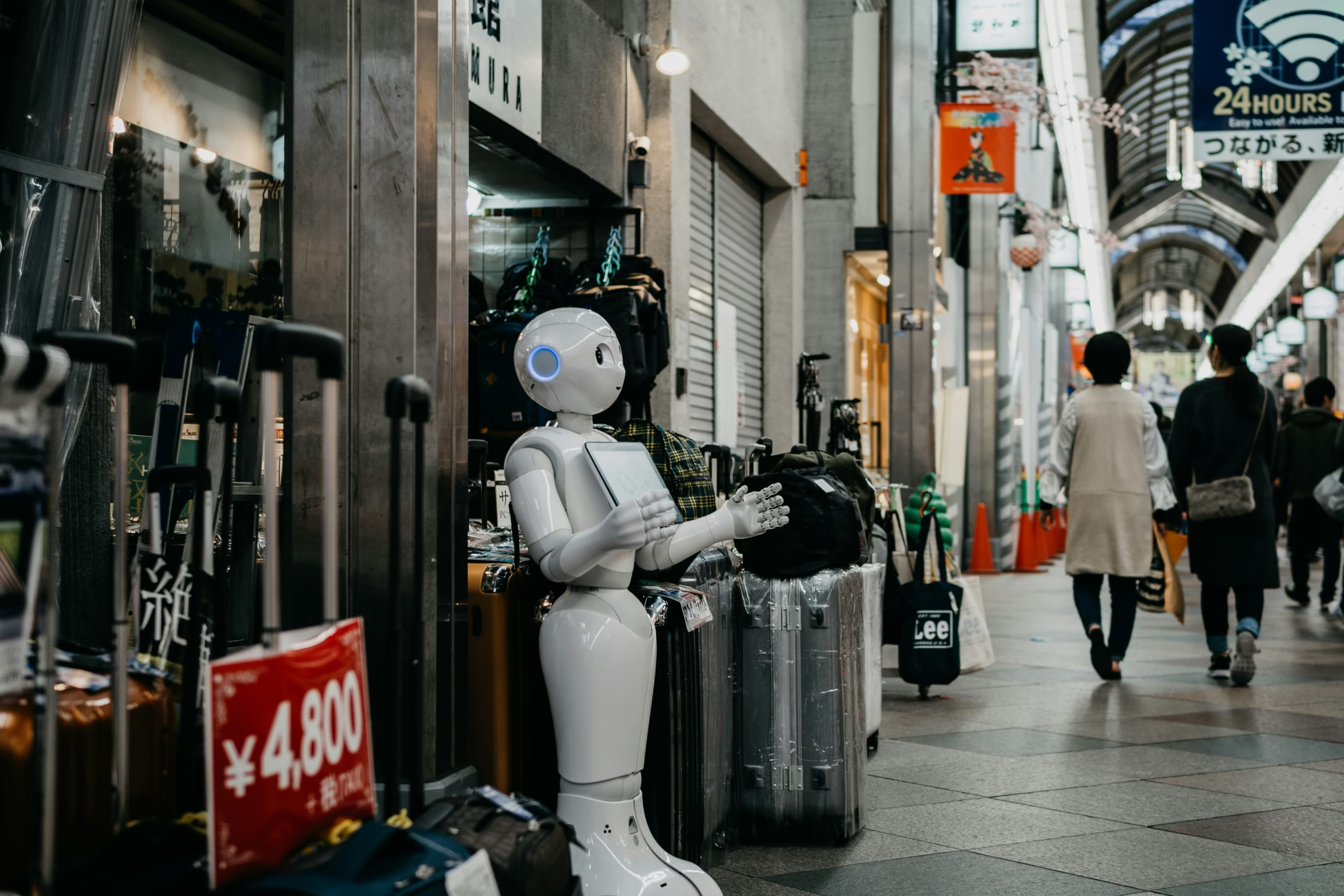What is Artificial Intelligence?
Artificial Intelligence (AI) is a multidisciplinary field focused on creating systems capable of performing tasks that typically require human intelligence. These tasks encompass a range of activities, including reasoning, problem-solving, understanding natural language, and recognizing patterns. The journey of AI dates back to the mid-20th century, when pioneers such as Alan Turing and John McCarthy laid the groundwork for modern AI with foundational concepts and early computational models.
Initially, AI research centered around symbolic methods and rule-based systems. However, progress in computational power and data availability catalyzed the evolution of more sophisticated techniques, such as machine learning, which allows systems to adapt to new data without explicit programming. Over the years, this evolution has led to the emergence of complex neural networks and deep learning models, capable of processing vast amounts of information and producing highly accurate outputs across various applications.
AI can be categorized into two main types: narrow AI and general AI. Narrow AI, also known as weak AI, is designed to perform specific tasks, such as voice recognition or image classification. It operates within a limited context and excels at the designated function, but lacks general cognitive abilities. On the other hand, general AI, or strong AI, aspires to emulate human intelligence comprehensively, allowing it to understand, learn, and apply knowledge across diverse scenarios. This level of intelligence remains largely theoretical and has not yet been realized.
Furthermore, AI encompasses various subfields, including natural language processing (NLP), which involves the interaction between computers and human language, robotics, where machines are designed to perform physical tasks, and computer vision, enabling machines to interpret and understand visual information. As these technologies continue to advance, the impact of artificial intelligence on our daily lives and various industries becomes increasingly profound.
Applications of AI in Various Industries
The impact of artificial intelligence (AI) is profoundly transformative across various industries, leading to enhanced efficiency and innovative solutions. In healthcare, AI applications include predictive analytics for patient outcomes, personalized treatment plans, and medical imaging analysis. For instance, companies like IBM Watson Health leverage AI to analyze vast amounts of medical data, helping clinicians make informed decisions in real-time, which ultimately improves patient care.
In the financial sector, AI is utilized for algorithmic trading, risk management, and fraud detection. Financial institutions such as JPMorgan Chase have implemented AI systems to analyze market trends and customer behavior, allowing for more accurate predictions and enhanced decision-making. These innovations not only streamline operations but also create a robust defense against fraudulent activities.
The education sector is also experiencing a significant shift due to AI technologies. Adaptive learning platforms enabled by AI assess students’ individual needs and tailor educational content accordingly. Companies like Knewton and DreamBox Learning demonstrate how these systems can provide a personalized learning experience, which improves student engagement and academic performance.
Transportation is perhaps one of the most visible areas where AI is making strides, particularly through the development of autonomous vehicles. Companies such as Tesla and Waymo are pioneering AI-driven transportation solutions that promise to reduce accidents and optimize traffic flow. AI algorithms analyze real-time data from sensors and cameras, allowing vehicles to make informed navigation decisions, which can lead to safer and more efficient travel.
Through these examples across various sectors—healthcare, finance, education, and transportation—it is evident that AI applications are not only enhancing operational efficiency but also fostering innovation. As industries continue to adapt and integrate these technologies, the potential for AI to drive significant change remains vast.
Challenges and Ethical Considerations in AI Development
The rapid advancement of artificial intelligence (AI) technologies has ushered in significant opportunities and challenges. Among the foremost issues are the ethical dilemmas and societal implications associated with AI deployment. A pressing concern resides in the potential for bias in AI algorithms. These biases often stem from the data used to train AI systems, which may reflect historical prejudices or underrepresentation of certain demographics. Consequently, when AI applications are utilized in sensitive areas such as hiring, law enforcement, or loan approval, biased outputs can perpetuate inequality and discrimination, necessitating a robust evaluation process for AI models.
Data privacy is another major concern. As AI systems rely heavily on vast amounts of data to function effectively, questions arise regarding how this data is collected, stored, and utilized. Privacy infringements can happen when personal information is inadvertently exposed during the training of AI models. Furthermore, there is the risk of unauthorized access to sensitive data, leading to significant implications for individuals and organizations alike. Therefore, it is crucial to implement stringent data governance policies to protect against such vulnerabilities.
Lastly, the potential for job displacement due to automation presents a formidable challenge for societies. As AI systems increasingly perform tasks traditionally handled by humans, there is a growing fear that jobs may be eliminated across various sectors. While AI can enhance productivity, it is essential to develop strategies for workforce transition and re-skilling, ensuring that individuals are equipped to thrive in a changing job landscape. To effectively navigate these challenges, the establishment of responsible AI practices and comprehensive regulations is paramount. Policymakers, technologists, and ethicists must collaborate to foster a development agenda that prioritizes fairness, accountability, and transparency, thus ensuring that AI serves the greater good of society.
The Future of AI: Trends and Predictions
The field of artificial intelligence (AI) is rapidly evolving, with a plethora of trends and predictions shaping its future trajectory. One significant trend is the rise of explainable AI (XAI), which aims to make AI systems more transparent and understandable. This shift toward explainability is essential, particularly in sectors such as healthcare, finance, and law, where decisions made by AI can have profound implications. As organizations increasingly rely on AI technologies, the ability to comprehend how these systems reach conclusions will foster trust and accountability.
Another emerging trend is the integration of AI in the Internet of Things (IoT). The convergence of these technologies is expected to enhance real-time data processing and decision-making capabilities. With AI algorithms analyzing data from interconnected devices, businesses can gain insights that lead to improved operational efficiency and innovation. For instance, IoT-equipped manufacturing processes can leverage AI to predict equipment failures and optimize maintenance schedules, thereby minimizing downtime and reducing costs.
Advancements in quantum computing are also on the horizon, promising to revolutionize the AI landscape. Quantum computers, with their ability to perform complex calculations at unprecedented speeds, could significantly enhance machine learning capabilities. This progress may enable the development of more advanced algorithms, capable of analyzing vast datasets and uncovering intricate patterns that traditional systems cannot handle. The fusion of quantum computing and AI could unlock new possibilities across various industries, enhancing everything from drug discovery to supply chain optimization.
Additionally, AI holds the potential to address pressing global challenges, such as climate change and healthcare shortages. By utilizing AI-driven models, researchers can simulate environmental scenarios and devise solutions to mitigate the effects of climate change. In the healthcare sector, AI can streamline processes and improve diagnostic accuracy, ensuring timely intervention and resource allocation. The future of AI holds tremendous promise, with possibilities that could transform industries and improve quality of life.









